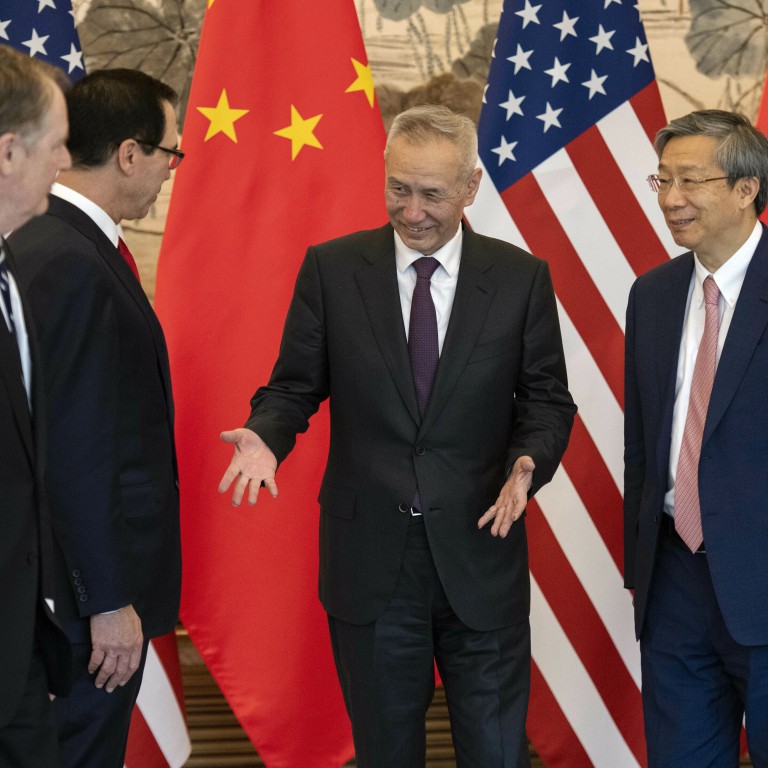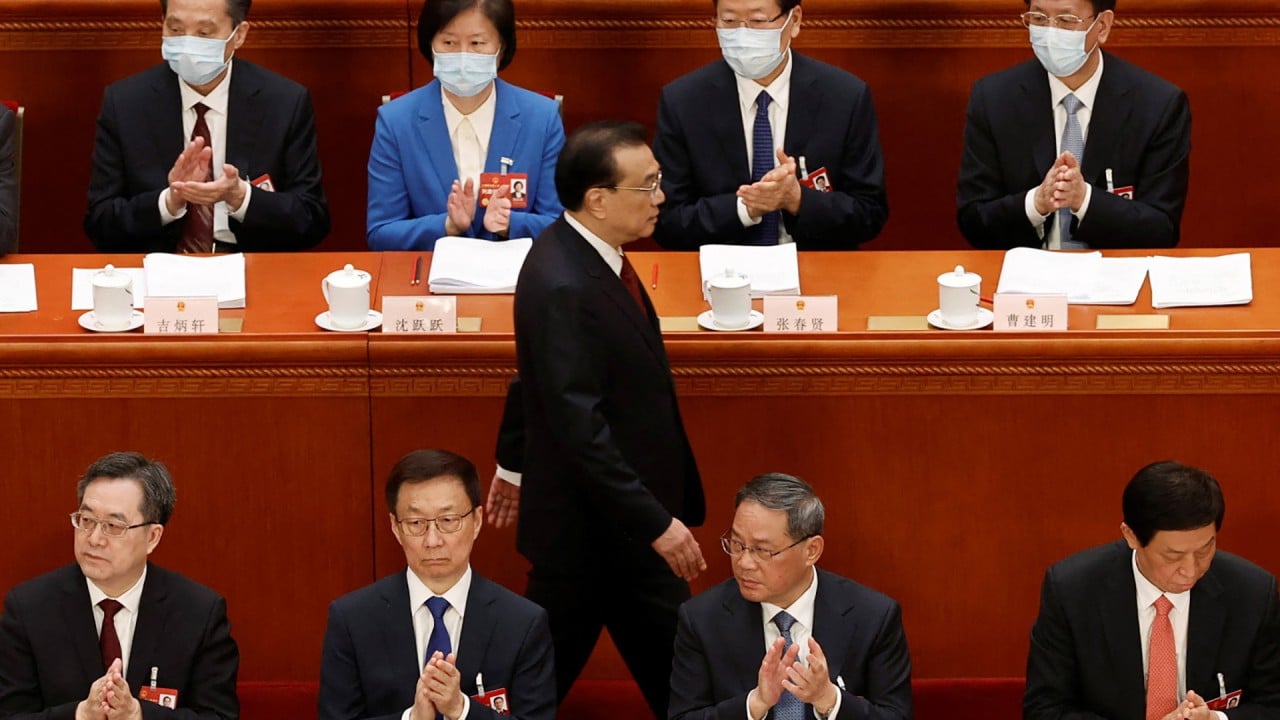
Explainer | Who is Chinese economist Yi Gang, the US-educated governor of the People’s Bank of China?
- Since 2018, central bank governor Yi Gang has led financial reforms and debt reduction, while maintaining a prudent monetary stance
- Educated in the US, Yi has also been responsible for raising China’s profile on the global stage and continuing its opening to the world
As a foreign-educated economist who once had tenure as a distinguished professor at a US university, Yi Gang cuts a distinct figure among China’s army of beige bureaucrats.
And he has unexpectedly secured a second five-year term as head of the central bank, extending his leadership role despite having reached retirement age this year. This gives him the chance to serve longer than usual, and it is particularly eye-catching given that the country has ushered in a mostly new administration under President Xi Jinping.
Yi, the 65-year-old governor of the People’s Bank of China (PBOC), is considered in Beijing to be a straight-talking, pro-market reformer with a scholarly air. Respected for his knowledge of monetary economics, he is also well known for his low-key and balanced work style.
Though he has a comparatively low rank in China’s political hierarchy, Yi has a long working relationship with former vice-premier Liu He, who was once the president’s closest economic adviser, dating back to the late 1990s.
China’s central bank and finance chiefs retain spots in cabinet shake-up
Fluent in English, Yi gained his PhD in economics in the United States and taught the same subject as an associate professor at Indiana University-Purdue University Indianapolis – an institution he has called his “second home” and at which he worked for about eight years before returning to China in 1994.
Yi said earlier this month that the central bank would maintain a prudent monetary policy and continue to address financial risks.
“We will further create a market-oriented, law-based and internationalised world-class business environment and steadily expand institutional opening up in the financial sector,” he said at a press conference on March 3, just prior to the opening of the “two sessions” parliamentary meetings.
Others saw it differently: with Beijing determined to raise its profile on the global stage, while also maintaining policy stability at home, Yi was the obvious choice.
Foreign investors react as Fed’s ‘renewed hawkish’ stance hits emerging markets
On Yi’s watch, the PBOC has accelerated financial reforms, such as introducing the Loan Prime Rate (LPR), which sought to establish more market-based interest rates.
He called for “competitive neutrality” in regards to China’s state-owned enterprises (SOEs) in his first year, responding to Western criticism about the unlevel playing field that has long given state firms an edge over foreign firms operating in China.
Under his leadership, the PBOC has accelerated China’s financial opening, lifting the ceiling on foreign ownership of financial institutions and expanding the bond-connect schemes between the mainland and Hong Kong.
But despite such positive steps being taken, market-access barriers, regulatory risks and geopolitical tensions still constrain foreign businesses in China.
China’s constitution does not limit the term of its central bank governor, but it bars premiers, vice-premiers and state councillors of the State Council from serving more than two consecutive terms. Yi’s predecessor, Zhou Xiaochuan, spent 15 years at the helm of the institution, since he still held a vice-state-level post at that time.
As China thaws out its property sector, can it light a fire under the economy?
Yi Gang was no longer in the Central Committee of the Chinese Communist Party after the 20th Party Congress, meaning he has been away from the country’s nerve centre of policy discussion and development. He was only an alternate member of the Central Committee during the past five years, with no right to vote in plenary sessions.
Born in 1958, Yi’s surprise second term might help mitigate worries about the outlook of China’s monetary policy and Chinese financial policymakers’ international engagement. But who becomes the next party chief of the PBOC, a more preponderant position, remains to be seen.
Either way, Yi has left his mark on the job.
Officials like Yi Gang ... have a lot of friends overseas
In the spring of 2015, while deputy PBOC governor and director of the State Administration of Foreign Exchange, Yi granted a media interview when taking the subway in Beijing.
In China, where government statements are closely scripted and information is tightly controlled, Yi’s off-the-cuff reply became a much-talked-about story at the time, and it hinted at the leadership style he would bring to the PBOC in the years to come.
“Officials like Yi Gang have had a lot of international exposure from early on in their careers,” said Victor Shih, an associate professor of political economy at the University of California San Diego, while speaking at an Atlantic Council event last week.
“They have a lot of friends overseas, which for the party is a little bit problematic, but for China, they really bring a lot to the table, because they’re able to … very comfortably talk to international investors, and international financial institutions such as the IMF, and negotiate with them for various things that China would like to have.”


